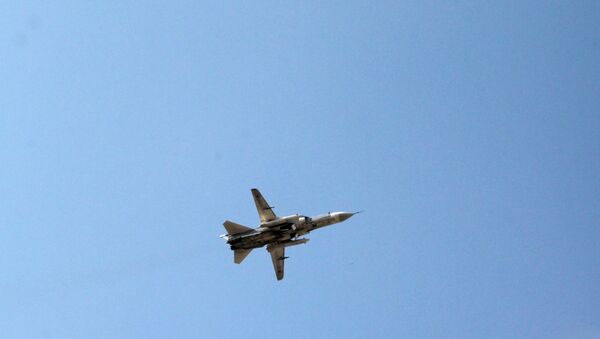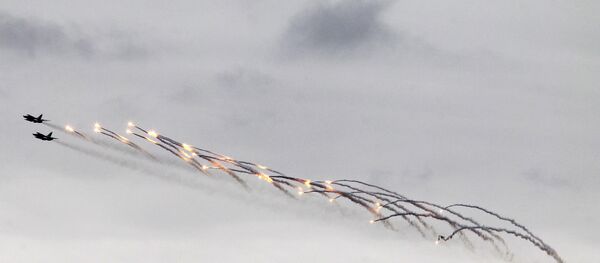MOSCOW (Sputnik) — On Tuesday, a Russian Su-24 jet crashed in Syria. The plane was shot down by an air-to-air missile launched by a Turkish F-16 jet over Syrian territory. One of the two Su-24 pilots was killed by fire from the ground after ejecting from the plane.
Ankara claimed it downed the Russian plane because it had allegedly violated Turkish airspace. Both the Russian General Staff and the Syrian Air Defense Command confirmed that the Su-24 was downed in Syrian airspace without crossing Turkey's border.
Economic Impact
"The incident is likely to have a major impact on the Russian-Turkish relations. Its immediate impact will be felt in economic relations, which have become stronger between the two countries in the recent years," Baris Karaagac, a professor in the Political Science department at Canada's Trent University in Oshawa, told Sputnik, noting that Russia was Turkey's second largest trade partner.
With Turkey dependent on imports from Russia, the incident and the consequences could be costly to the Turkish economy. "A possible crisis in the bilateral relations will hit particularly Turkey, which buys significant amounts of oil, oil products and natural gas from Russia," Karaagac said.
"The Russian Administration can put technical bureaucratic obstacles to the imports from Turkey with the aim of making them unprofitable and inadvisable," Byron Matarangas, an associate professor of Istanbul Bahchesehir University, said.
A drop in tourist flow from Russia will deprive Turkey of a major source of foreign currency, he added.
Geopolitical Impact
With the Su-24 downing incident being the first NATO member attack on a Russian aircraft since the 1950, its political ramifications are also set to be significant, according to experts.
"The incident reflects clearly this diversity of priorities among the participants in the proposed anti-terrorist coalition," Matarangas said, stressing that Turkey, the United States and the United Kingdom were prioritizing removing Syria's President Bashar Assad from power.
"Russia will have to accept this if it does not wish to launch an even more risky and costly counter-escalation," he added.
Regarding the counter-terrorist coalition, Sayigh rejected the concept of a united effort, stressing differing approaches and objectives among the involved countries.
"The best we can hope for is two or more parallel campaigns with coordination to avoid accidents," he added.
Sayigh added that the Su-24 incident further reduced the chances of a formal coalition.





